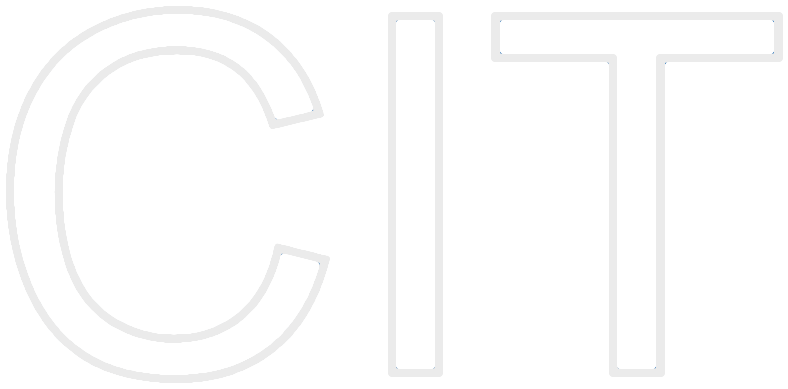Hauptseminar: Management of Software Testing Projects(WS 07/08)
Prof. Bernd Bruegge, Ph.D.
Lilith Al-Jadiri
Abstract
The software development lifecycle begins with the identification of a requirement for software and ends with the formal verification of the developed software against that requirement. Software testing is becoming an increasingly critical component of the development life cycle and, as such, demands focus and experience.
As important as testing is, companies are focusing on testing in the most efficient, cost effective way. Since years, a common trend for companies to cut costs, is to partially or completely outsource their software testing process. Outsourcing has increasingly been done at offshore facilities where costs are lower. Although offshore models at first appear to provide a low cost advantage, the problems, however, can outweigh the benefits through several challenges to test effectiveness.
Software testing companies without an integrated approach in their organizational structure for concepts such as knowledge management, TPI, conventional test methods (e.g. model-based testing), automation framework, tools, training, and outsourcing, lack eventually the foundation for success.
Scope: The seminar covers a wide spectrum of topics in the area of software testing such as:
- Testing Process Improvement Models
- Test Management
- Testing Maturity Level
- Moduling Maturity Level
- Knowledge Management
- Model-based Testing
Registration
Important: The registration phase has terminated. All topics have been assigned.
Topics are awarded on a first come, first serve basis. You can send an e-mail to Lilith Al-Jadiri with your name and topic of interest.
Intended Audience
Students with a Vordiplom (Abschluss des Grundstudiums) and some system development experience (e.g., a Software Engineering Praktikum or Software Engineering Lecture).
Topics
| Topic | Presenter | Paper | Slides (pdf) |
|---|---|---|---|
| I | Emanuela Bratulescu | ||
| II | Vasil Dzhalazov | ||
| III | Fatemeh Joweini | ||
| IV | Stefan Dangl | ||
| V | Bakr Albatran |
Topic Content:
I. A Comparison of Test Process Improvement Models:
- Overview:An overview of currently existing Test Process Improvement-models, which currently identifies the next models:
- The Maturity Model for Automated Software Testing (MMAST)
- The Testing Assessment Programme (TAP)
- The I.T.B.G. Testing Capability Maturity Model (TCMM)
- The Test Improvement Model (TIM)
- The Test Organization Maturity Model (TOM)
- The Test Process Improvement Model (TPI)
- The Testability Support Model (TSM)
- and many others
- Goal: Select three (3) of the most common and recent TPI models and conduct a thorough comparison/contrast between them.
- References:

White Paper: A comparison of TMM and other Test Process Improvement Models Book Test Process Improvement: A Practical Step-by-Step Guide to Structured Testing
Author: Tim Koomen, Martin Pol
II. Knowledge Management:
- Overview: Knowledge Management ('KM') comprises a range of practices used by organisations to identify, create, represent, and distribute knowledge for reuse, awareness and learning. Knowledge Management programs attempt to manage the process of creation (or identification), accumulation and application of knowledge across an organisation.
- Approaches to KM (Techno-centric, Organizational, etc.)
- KM Concepts
- KM Technologies
- KM Roles and Organizational Structures
- Goal: The objective is to understand the practice of knowledge management and outsourcing in software testing. Based on that understanding, we derive a hypotheses for testing outsourcing and knowledge management.
- References:
| Conf. Paper: Outsourcing and Knowledge Management in Software Testing | |
| Conf. Paper: A Framework for Characterizing Knowledge Management Methods, Practices, and Technologies |
III. Testing Methodologies:
- Overview: Modeling and Model-based Testing using:
- UML, UML Testing Profile (U2TP), and TTCN-3
- Goal: Explain the testing process using the MBT approach based on U2TP Models and extended with TTCN-3 for test automation.
- References:

Specification of Test Infrastructure and Architecture 
Modelling und Testing: Model-based Testing 
Model-based Testing
An Introduction to TTCN-3 and its Application in MDT
IV. MBT as a Testing Process:
- Overview: Model-based Testing (MBT) Taxonomy, Process and activities.
- Goal: Provide insight into model-based testing as a software testing methodology, and its main components; moreover, we are investigate the integration of MBT in the software development process.
- References:
V. MBT Test Automation:
- Overview: Model-based Testing (MBT), Test Automation Techniques and Tools.
- Goal: Report on the general techniques of test automation used for functional black-box testing; moreover, cover MBT test automation techniques.
Time and Location
Preliminary meeting (Vorbesprechung):
- Date: tba
- Time: tba
- Location: Besprechungsraum 01.07.058
This Seminar will be held as a block Seminar. The start date is yet to be set and will be announced. Most probable date is the November the 16th, 2007.
Requirements
- High motivation for the topic
- A presentation of about 40 - 45 minutes
- Presentation Slides (atleast 10 content slides)
- Atleast half a page of textual description to each slide
- Independent literature research
- Attendence to all presentations and active discussion in the seminar
Notes
- This seminar is conducted in English
- Successfull participation can be accredited with a Hauptseminar Schein.
- SWS: 2
Useful links
- Tips for the presentation
- How to Present a Paper in Theoretical Computer Science: A Speaker's Guide for Students
- Paper about writing good papers
- Literature search
- Citeseer (free access)
- ACM Digital Library (access from TUM, configure your browser to use proxy.biblio.tu-muenchen.de:8080 as http proxy)
Supervisor
Professor
| Prof. Bernd Brügge, Ph.D. |
Contact
| Lilith Al-Jadiri |

